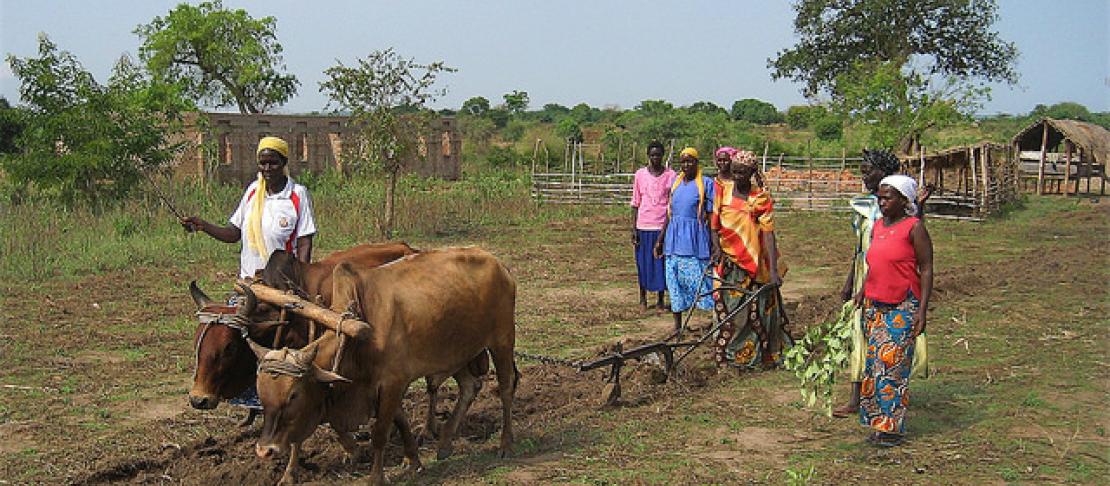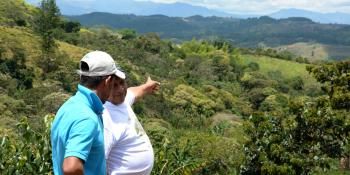Uganda's policy makers to consider gender and climate research

CCAFS and IITA gender and climate change research to be discussed at the Ugandan Parliament
During the last decade, evidence that climate change poses gender-differentiated threats to rain-fed farming communities around the globe has grown considerably. There is now little scientific doubt that men and women possess different adaptive capacities to climate change depending on, among other things, their differing gender roles, decision-making powers and access to productive resources within their households and the broader community. These differences are further influenced by factors such as socio-economic status, demographic factors and cultural considerations.
Unfortunately, highly relevant gender and climate change research studies are, more often than not, kept within the confines of scientific forums and academic journals. On the rare occasions when they do reach policy-making circles and, even more rarely, inform policies, they tend to do so in very generic terms and without the context-specific gender and climate change nuances that each specific region and country faces. This only emphasizes the fact that making context-specific gender research findings directly available to legislators and other state actors is fundamental to the pursuit of evidence-based policymaking. After all, what are research findings worth if they are not used, discussed and engaged with by policy actors for the improvement of future policies?
Within the framework of the CCAFS project “Policy Action for Climate Change Adaptation (PACCA)”, the International Institute of Tropical Agriculture (IITA) has partnered with the Parliamentary Forum on Climate Change and the Parliamentary Forum on Food Security, Population and Development to strengthen the national research-base on agriculture, climate change and food security in the country.
As part of this partnership, a High Level Gender, Climate Change and Food Security event will be held on 30th August 2016 at the Ugandan Parliament to share research findings on gender, climate change and food security in the country; to develop policy recommendations for ensuring gender responsive climate change adaptation in policy makers’ deliberations; and to develop an accountability mechanism for gender auditing and budgeting in climate relevant sectors.
This event builds on the knowledge gathered at the PACCA-Learning Alliance National Reflection Workshop on Gender and Climate Change, held in November 2015, with members from civil society organizations, research institutions, local governments, ministries and the media. The key research evidence and messages that emerged during the event, together with the continued policy engagement that took place after that, form the foundation for the upcoming High Level Gender event.
This comes just as the Ugandan Parliament “Research Week” recently concluded, with a clear message on the need to base legislative decisions on research findings. This message was clearly encapsulated in the words that the Deputy Speaker of Parliament, Rt. Hon. Jacob L’Okori Oulanyah, shared with the rest of the parliamentarians:
“If you are formulating policy, you ask questions like; what is the problem? Is the solution the right one? Were there alternatives? That is what Parliament should ask.”
The High Level Gender and Climate Change event signifies a founding step towards achieving more gender-inclusive climate change and agriculture policies and programs by bringing these discussions to where legislative decisions are made. Furthermore, the event will serve as a forum in which to discuss and identify national gender and climate change research needs so that CCAFS, IITA and partners’ future action research responds directly to the needs of Uganda legislative bodies and that of the country.
Learn more from the outcomes of this event in the coming days on the CCAFS blog!
Mariola Acosta is a Research Fellow at the International Institute of Tropical Agriculture (IITA) in Uganda and PhD candidate at Wageningen University.



